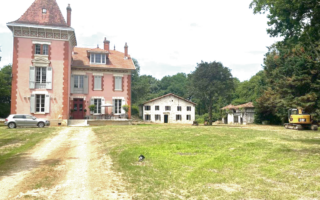French Planning Law Q&A


Lawyers Jérôme Frances-Lagarrigue and Julia Jones examine how French planning law works and consider what you need to know before you get started – and what to do if planning permission is refused
When do I need planning permission?
You will require planning permission (permis de construire) if you intend to construct a new build (or extension) with a surface area greater than 20 m². You will also need it if you intend to change the use of an existing structure, for example if you renovate a barn or stable (i.e. which was previously used for agriculture purposes) into living accommodation/bedrooms.
If your construction project does not need a permis de construire, you will probably still be required to make a declaration at the town hall (a déclaration de travaux for smaller projects).
There are two series of regulations that govern planning permission in France:
1) National town planning regulations. These are contained in the French Code de l’Urbanisme, and local rules contained in local schemes (you may have heard of the POS – Le plan d’occupation des sols or the PLU – Plan Local d’Urbanisme). You can consult the local schemes at your town hall.
2) The rules contained in the French Civil Code governing relations between neighbours, for example about rights of way, etc.
Who grants planning permission?
A request for planning permission has to be submitted to the local town hall. You will be asked to provide a detailed file, containing the plans of your future construction. These plans must be drafted by a registered architect if the surface area is greater than 170 m². In this case, the architect will generally prepare the file for you.
The mayor will check that your request complies with the national and local town planning regulations.
Care must be taken when compiling the file. You may face long administrative delays if the file is incomplete.
How will I know if my planning permission has been granted?
In most cases, you will receive written notification that the permission is granted or refused. Planning permission is deemed to have been granted ‘implicitly’ if you hear nothing for two months, except in certain specific cases, e.g. if your project must be approved by another administrative authority. This is the case if your project is located within the vicinity of an historical monument, when the mayor must submit the project for approval to the architecte des bâtiments de France. In the latter case planning permission can never be granted ‘implicitly’.
You are under a legal obligation to publicise the planning permission on the site where you will be building (generally speaking the architect or builder will put up a sign giving a summary of information about the project and the date the planning permission was granted).
The mayor will also publish the planning permission at the local town hall.
What can I do if planning permission is refused?
There are different ways of appealing against the mayor’s decision. The most common one is to initiate action in the Administrative Courts. If you intend contesting a decision, you only have two months in which to start your action from the date you were informed of the refusal.
The mayor can only refuse planning permission if it is contrary to the national and local town planning regulations. However, be aware that not all mayors are experts in the field of French legislation and mistakes can be made.
Can anyone appeal against the planning permission that has just been granted to me?
Yes, unfortunately a disgruntled neighbour may appeal against ‘your’ planning permission. He/she must do so within two months’ of the different publicity measures becoming effective (i.e. the sign put up on your land or the notice at the town hall). The neighbour will not take action against you, but against the mayor, (or, more specifically against the administrative deed (acte administratif) granting you planning permission.
You can continue to build during the appeal procedure – however it is not advisable to do so because if the Courts do cancel the permission, there is a risk (albeit slight) that you will be required to demolish the building.
Caveat! French regulations concerning planning permission are complicated – the information provided here is only a summary of the main provisions. Once your project is reaching the closing stages, we advise you to seek professional advice to define which specific regulations apply to your project.
Jérôme Frances-Lagarrigue and Julia Jones
BRIGHT JONES
Cabinet d’avocats
54 bis, rue d’Alsace Lorraine – 31 000 TOULOUSE
Tel. 05 61 57 90 86 – Fax. 05 61 22 69 66
[email protected]
Share to: Facebook Twitter LinkedIn Email
More in alsace, holiday accommodation, land, legal, Lorraine, renovation
By FrenchEntrée
Leave a reply
Your email address will not be published. Required fields are marked *



